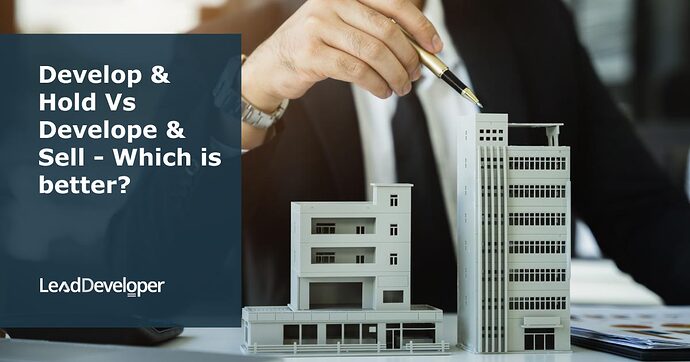Develop & sell strategy
A Develop & Sell property development strategy involves finding undervalued properties in desirable locations, developing and renovating them to increase their value, and then selling them at a profit. This strategy can be financially demanding and time-consuming, but it can also provide significant returns if done correctly.
You are missing out if you haven’t yet subscribed to our YouTube channel.
How does this work?
To start, it’s important to thoroughly research the local real estate market and identify areas with strong demand for new or renovated properties. This will help you find properties that have the potential to appreciate in value after development.
Next, you’ll need to create a development plan for each property, including renovation and construction costs, projected sale prices, and timelines for completion. It’s important to have a clear understanding of all costs associated with development, including permits, materials, labour, and any contingencies.
Once the properties are developed and ready for sale, it’s essential to market them effectively. This can include hiring a real estate agent, creating marketing materials, and staging the properties to showcase their best features.
It’s also essential to have a solid financial plan in place. This may include securing financing for the development, managing cash flow during the development process, and protecting yourself from potential risks.
Finally, it’s important to be aware that property development is a high-risk, high-reward endeavour and there are many factors that can impact the success of the project, such as economic conditions, zoning laws, and competition.
Learn More
- Lead Developer - Develop & Sell Development Feasibility Software
- Lead Developer+ - Build-To-Rent Property Development Feasibility
It’s advisable to consult with professionals such as real estate agents, contractors, and financial advisors to help guide the process and make informed decisions.
Develop & hold strategy aka Build-To-Rent
Developing and holding a property investment strategy can have several benefits, including:
- Instant Equity – by not selling your developed units, you can create instant equity in your project.
- Long-term rental income & higher yields: Once the properties are developed and rented out, they can provide a steady stream of rental income with a yield higher than normal. Don’t forget, because you are holding your developed units, you are getting the same rental yield on pure cost as opposed to a full price new property. This can be especially beneficial for property investors who are looking for a stable, long-term investment with a higher yield.
- Appreciation: As the properties are improved, their value will likely increase on top of the extra equity that has already been generated via development. As a result, if the properties are held for a long time, the investor can see significant appreciation in the value of their investment.
- Tax benefits: As a property owner, you may be able to take advantage of various tax benefits, such as deductions for mortgage interest, depreciation, and repairs.
- Control over the property: As the owner of the property, you have control over how it is managed and maintained. This allows you to make decisions that will positively impact the property’s value and rental income.
- Potential for leverage: By using leverage (borrowing money to purchase the property), investors can control a much larger asset with a smaller amount of capital. This can help to magnify returns because you can now access the extra equity in your developed units to rinse and repeat the process.
Summary
Your overall development and investment strategy will determine whether you rent or sell your final development. Many real estate developers will construct and sell, but others may prefer to own the developed units and turbocharge their property portfolio.
Your tax situation should factor into whether you rent or sell, and your accountant is the best person to advise you on this.



